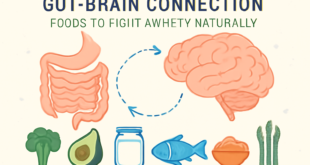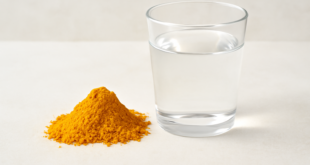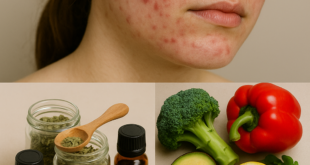
ZINC DEFICIENCY IN DOGS
Zinc is an indispensable mineral essential to the wellbeing of our canines. While our focus may lie mainly with proteins, fats and vitamins in their diets, zinc deficiency should never be ignored in fact it could become serious without treatment. A deficiency can result in many health complications for both you and your pup–some potentially life threatening!
In this article, we’ll look into the causes, symptoms and treatments options of zinc deficiency in dogs. In addition, we will address zinc-rich food items which can support your pop’s immune system health as well as overall wellness.
WHY ZINC IMPORTANT FOR DOGS?
- Maintain a healthy skin and coat by following these tips.
- Support the immune system
- Aid wound healing by supporting hormone regulation
- Aiding in enzyme and protein production.
As soon as a dog doesn’t receive sufficient zinc, its body struggles with performing basic functions, leading to noticeable health problems and increasing susceptibility for diseases like arthritis or chronic inflammation.
WHY ARE DOGS LACKING ZINC?
1. Sub-par Diet
Low-quality commercial dog foods often lack bioavailable zinc and contain ingredients (like grains and legumes ) which hinder its absorption, leading to suboptimal absorption rates for zinc absorption by your pup.
2. Breed Predisposition
Some breeds are genetically predisposed to zinc deficiency, especially:
Siberian Huskies, Alaskan Malamutes, Doberman Pinschers and Great Danes typically require higher zinc intake even with balanced diets.
3. Health Conditions
Digestion issues such as Inflammatory Bowel Disease (IBD) or intestinal parasites can interfere with how efficiently your dog absorbs zinc from food sources, making absorption even harder for your pup to achieve.
4. High Calcium Diets
Calcium can negatively impact zinc absorption; so feeding raw bones rich in calcium could potentially result in zinc deficiency for your pet.
Recognizing Zinc Deficiency Its Although symptoms of zinc deficiency might appear minor at first, they usually worsen over time without intervention. Here is what to watch out for when diagnosing zinc deficiency:
Crusty or flaky skin conditions in dogs often occur around the eyes, mouth, and paws.
Hair Loss or Thinning Coat?
Slow wound healing, frequent infections, loss of appetite and low energy are common complaints; other problems include lethargy or low energy as well as digestive issues like vomiting or diarrhea.
HOW TO TREAT ZINC DEFICIENCY IN DOGS?
Zinc deficiency in dogs is treatable. Once diagnosed, your veterinarian may suggest one or more of the following measures to address their deficiency:
1. Zinc Supplements
Zinc is typically given in chelated form such as zinc methionine for maximum absorption by dogs. Nevertheless, you should always seek advice from your veterinarian prior to giving zinc supplements as too much zinc can be toxic and lead to serious illness in pets.
2. Improve Diet
To help increase zinc availability for dogs and increase absorption rates, opt for high-quality dog food with bioavailable zinc content that contains only whole ingredients without grains and fillers that could hamper absorption.
3. Zinc-Rich Foods in Their Meals
Natural food sources can be an effective way of raising zinc levels; let’s look at a selection of zinc-rich options below.
Zinc-Rich Foods for Dogs
Here are a few healthy zinc-rich foods you can incorporate (in moderation) into your dog’s diet:
Beef liver – Packed full of zinc and other essential minerals
Pumpkin Seeds – Ground and sprinkled liberally onto food dishes
Oysters – These foods contain extremely high concentrations of zinc; for safe consumption only feed cooked and in small portions.
Eggs: An Excellent source of Protein and Moderate Zinc Content
Lamb is naturally abundant with bioavailable zinc.
Sardines – Packed full of omega-3s and zinc.
Chicken and turkey (especially dark meat) – Easy to digest and packed with zinc
PREVENTATIVE MEASURES ARE ALWAYS BETTER
Prevention is always preferable over treatments; make sure that you safeguard the wellbeing of your pup by keeping an eye out for signs that they’ve contracted an illness, so as soon as an issue arises make sure he/she receives medical treatment immediately.
Eats a nutritionally dense diet
Receives regular veterinary check-ups.
Does not over-supplement with calcium
Get enough variety in their diet sources
FINAL THOUGHTS
If your breed of dog is susceptible to zinc deficiency, consider having regular supplements administered or bloodwork done as soon as possible with their veterinarian.
Zinc deficiency in dogs is much more widespread than many pet owners realize, often leading to serious health complications if left untreated; but with proper diet and care it can easily be prevented or treated.
By staying informed and paying close attention to the symptoms your dog exhibits, you can quickly take necessary actions and ensure he remains happy, healthy and full of life.
If this article proved beneficial for you and other dog parents alike, feel free to pass along and post below with any thoughts, queries, or requests! If your questions were unanswered after reading it all.
 healthybodyboost.net Healthy Body Boost
healthybodyboost.net Healthy Body Boost



